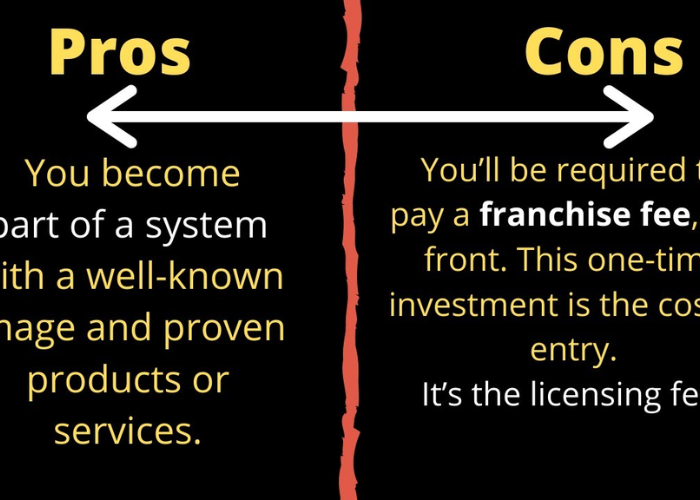Franchising is a popular business model which has been gaining traction over the years. It is a business arrangement that allows the franchisor, or the company offering the product or service, to license its trademark and products or services to the franchisee, or the individual or company that purchases the license to use the trademark and products or services. This business model has become increasingly popular due to its ability to offer entrepreneurs the opportunity to be their own bosses and start their own businesses without having to develop their own products or services.
Definition of Franchising
Franchising is a business model which involves two parties working together to create a successful business. The franchisor is the company that provides the product or service and the franchisee is the individual or company that purchases the license to use the trademark and products or services offered by the franchisor. The franchisor will provide the franchisee with the necessary training, support, and resources to ensure the franchisee is successful in their venture. The franchisee will pay a fee to the franchisor for the right to use their trademark and products or services.
Pros of Franchising
Low Risk: Franchising is often seen as a low-risk way of starting a business, as the franchisor usually provides the franchisee with the necessary training and resources to ensure they are successful. This means that the franchisee doesn’t have to worry about developing their own products or services, or building a customer base.
Low Cost: Franchising is also a much cheaper way to start a business than starting from scratch. The franchisee only needs to pay a one-off fee for the license to use the trademark and products or services of the franchisor, rather than setting up their own business.
Brand Recognition: The franchisee also benefits from the brand recognition of the franchisor. By using the franchisor’s brand, the franchisee can benefit from the reputation and trust that the franchisor has already established.
Support: The franchisor will usually provide the franchisee with ongoing support and advice in order to help them succeed in their venture.
Cons of Franchising
Limited Control: The franchisee has limited control over the products or services they offer as they are restricted to using the products or services of the franchisor. The franchisee also has to abide by the rules and regulations set out by the franchisor.
Cost: Although franchising is a much cheaper way to start a business than starting from scratch, the upfront cost of purchasing the license can be expensive.
Reputation: The franchisee’s reputation is tied to that of the franchisor and its brand. If the franchisor’s brand is associated with negative reviews or incidents, the franchisee’s business may suffer as a result.
Conclusion
Franchising is a popular business model which has both pros and cons. It is a low-risk way to start a business with the benefit of brand recognition, but the franchisee has limited control over the products or services they offer and the cost of purchasing the license can be expensive. Ultimately, the decision to franchise should be made based on the individual’s circumstances and goals.






